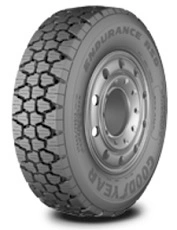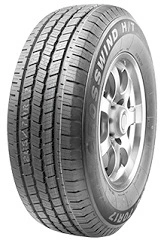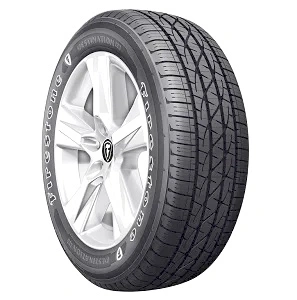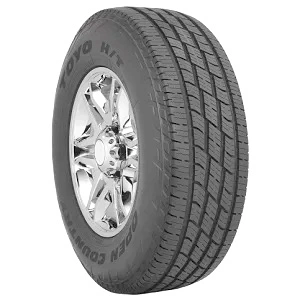Your Shopping Cart
Your cart is empty.
Subtotal ( items)
Instant Rebate Applied:
Promo Code Applied: ID.me Discount Applied:
Have a Promo Code?
Size:
Item
Item
Selected for:
/ each
Add-Ons
Wireless air pump capable of pumping up to 150 psi with 2000 MAH power bank.



Fully protect your clothes and vehicle interior during transportation of your tires. For Tires up to 31" tall and wheels up to 22".
Per sensor
Add TPMS Sensors
/per sensor
Please confirm the make, year, model and trim of the vehicle you want to purchase for:
How many sensors do you need?
The vehicle you have selected is not compatible with aftermarket TPMS Sensors.
Enter a different vehicle to add TPMS sensors

 Front Tire Size:
Front Tire Size:
 Rear Tire Size:
Rear Tire Size:
 Your Vehicle:
Your Vehicle:
Pros & Cons of Staggered Fitment

Attractive Design

Improved Handling

Improved Cornering
Bumpier Ride
Poor Traction in Snow
How do I find my tire size?



Need help?
 Your Vehicle:
Your Vehicle:
Pros & Cons of Staggered Fitment

Attractive Design

Improved Handling

Improved Cornering
Bumpier Ride
Poor Traction in Snow
How do I find my tire size?



Need help?
Pros & Cons of Staggered Fitment

Attractive Design

Improved Handling

Improved Cornering
Bumpier Ride
Poor Traction in Snow
Need help?
Need help?
How do I know if I have an LT tire?

 Your Vehicle:
Your Vehicle:
Sorry, we could not find any available
wheels for your sizing selections.
Need help?
Highway Terrain Tires: H/T Tire Meaning
By Tire Agent Staff
September 12, 2023
The number of tire options available can be overwhelming, but each style is designed for specific purposes. You've got all-season, touring, summer, winter and performance, to name a few. There is even a category that might be off your radar: We're talking about highway tires.
Let's explore what highway tires are, what sets them apart from others and some of the benefits they provide.
What Are Highway Tires?
As the name suggests, highway tires (sometimes called HT or H/T) are designed primarily for use on highways and paved roads. These tires are a subset of the broader category of passenger tires, but they come with unique features and characteristics that make them particularly well-suited for highway driving.
Distinguishing features of H/T tires
- Tread pattern
One key feature that sets highway tires apart is their tread pattern. Highway tires typically have a shallower and less aggressive tread pattern than all-season or off-road tires. This design choice minimizes rolling resistance, essential for highway driving, as it helps improve fuel efficiency.
- Tread compound
Highway tires are constructed with a specific tread compound optimized for on-road use. This compound provides a smooth, quiet ride, enhancing comfort during long journeys. It also improves traction on dry and wet roads, ensuring safety in different driving conditions.
- Sidewall construction
The sidewalls of highway tires are often designed to be more rigid. This feature helps maintain stability at higher speeds and while carrying heavy loads, making them suitable for both commercial and passenger vehicles.
- Speed rating
Highway tires typically come with higher speed ratings, denoted by letters such as H or V. These ratings indicate these tires can safely handle higher speeds, which is essential for highway driving. See this speed rating chart for more info.
Highway Tires vs All-Season Tires
Now that we better understand highway tires, let's compare them to all-season tires, one of the most common tire types for passenger vehicles.
All-season tires are designed to provide good performance in a wide range of conditions, including dry, wet and light winter weather. While they are versatile, they may not shine in any particular area. Here are some key differences between highway tires and all-season tires:
- Tread depth and pattern: All-season tires have a deeper and more aggressive tread pattern compared to highway tires. This is to provide better traction in various conditions, including snow and slush. In contrast, highway tires have shallower treads optimized for dry and wet road conditions.
- Ride comfort and noise: Highway tires typically offer a smoother and quieter ride due to their specialized tread compound. All-season tires may be noisier, especially at high speeds.
- Fuel efficiency: Highway tires are designed to minimize rolling resistance, which improves fuel efficiency. All-season tires may have a higher rolling resistance, leading to slightly lower fuel efficiency.
Highway Terrain vs All Terrain
All-terrain tires are designed for driving off road. While they are legal and OK to drive on pavement and highway surfaces, they may be noisier and more rigid than highway terrain or even all season performance tires. Some utility or construction vehicles, large SUVs and LT trucks drivers prefer A/T to H/T when they tend to drive more often on uneven surfaces, such as construction sites.
Want to know more about all-terrain tires? Check out our post here.
Who Can Benefit From Highway Tires?
Highway tires are not limited to commercial use. They are suitable for many vehicles, including commuter and passenger vehicles. Here's a breakdown of the types of vehicles that can benefit from highway tires:
Passenger Cars
Highway tires are an excellent choice for daily commuters and individuals who primarily drive on highways and city roads. They offer a comfortable ride, good traction on wet surfaces and improved fuel efficiency.
SUVs and crossovers
Many SUVs and crossovers spend a significant amount of time on highways. Highway tires can enhance the driving experience by providing a smoother ride and better handling.
Light trucks and vans
Light trucks and vans used for transportation or delivery purposes can benefit from the durability and stability of highway tires, especially when carrying heavy loads.
Recreational vehicles (RVs)
RVs are designed for long-distance travel, often on highways. Equipping them with highway tires ensures a comfortable and safe journey.
Trailers
Trailers can also benefit from highway tires for cargo or recreational use. These tires help maintain stability and reduce rolling resistance, improving overall towing performance. The important thing to consider with trailers and, for that matter, RVs, is load rating. Always choose tires that match the manufacturer's recommended speed and load ratings.
So ... can you drive on highway tires in the city?
Yes, you can drive on highway tires in the city. Highway tires are designed for use on highways and paved roads but are also perfectly suitable for city driving. In fact, many city roads are well-maintained and similar in surface type to highways, making highway tires a comfortable and efficient choice for commuting and city driving.
Downsides of Highway Tires (H/T)
There are a few downsides of highway tires you should consider.
Limited off-road capability: Highway tires are not designed for off-road use. Their shallow tread depth and less aggressive tread pattern can limit traction and handling on unpaved or rough terrain. If you frequently drive off-road, highway tires may not be the best choice.
Initial purchase price: Some highway tires, especially those with advanced technology and features, can have a higher initial purchase price than budget tire options. However, the potential fuel savings over time can offset this cost.
Handling in extreme conditions: Highway tires may not provide the same level of handling and control in extreme conditions, such as heavy rainstorms or icy roads. You should exercise caution in adverse weather.
Choosing the right tires for your vehicle and driving needs is crucial for safety, comfort and fuel efficiency. Whether a daily commuter or a long-haul trucker, highway tires can offer you a smooth and efficient journey on the open road.
Here are some top highway tire options to consider, along with per-tire prices*
-
-
- Goodyear Endurance RSD ULT $448*. Why the steep price? The enhanced toughness and traction help you navigate local streets and interstate highways. Engineered with advanced tread compounding and tire construction, it goes the extra mile by offering extended longevity and resistance to irregular wear. This M+S stamped tire boasts an open tread design with aggressive blading, ensuring steadfast traction in diverse conditions, whether dry, wet, muddy or snowy.
- Crosswind H/T $138. This tire redefines ultra-high-performance driving. Crafted for performance compacts, coupes, CUVs and sedans, it delivers exceptional handling prowess. Plus, with a reassuring 50,000-mile limited tread life warranty, it's your ticket to long-lasting performance and peace of mind on the road.
- Firestone Destination LE3 $166. From rain to sunshine and even snow, these tires ensure you cruise on, unbothered by the weather's whims. With a robust 70,000-mile limited warranty, they'll keep your adventure rolling, no matter where it takes you.
- Goodyear Radial LS $282. Reliable performance meets unparalleled comfort with these tires. Experience a tranquil, controlled ride thanks to their unique tread block sequence, which enhances handling and traction and minimizes road noise, providing a smooth and quiet journey.
-
-
-
- Toyo Open Country H/T II $128. Featuring advanced technology and design enhancements, these tires deliver superior wet braking performance, exceptional handling, extended tread life and consistent performance over their lifespan. They offer a dual sidewall design – one side with a sporty look and the other with a classic style – allowing you to choose the appearance that perfectly matches your vehicle.
-
Other highway tires to consider:*
- Crosswind L780 $147
- Firestone Transforce HT2 $196
- Lionhart Lionclaw HT $189
- Michelin Agilis CrossClimate $230
- Michelin Primacy LTX $217
- Nitto Dura Grappler 4-Rib Dura-Belt $262
- Otani BM1000 $128
- Otani SA1000 $103
*Prices subject to change. Prices listed may not reflect current deals, discounts and offers; see Tire Agent's Deals page. Price includes shipping, which is always FREE and FAST from Tire Agent within the United States.
How to Qualify for the $50 Offer
- Add items to your cart and begin checkout.
- Select PayPair and apply for financing.
- If you’re approved by a participating lender, you’ll see a $50 promotional rebate applied to your order total.
-
To receive the $50, you must:
- Complete your purchase with a qualifying lender,
- Agree to the payment terms,
- And make the required number of consecutive on-time payments, as specified by the lender.
Note: Offer available only through select lenders. Additional eligibility requirements and conditions apply. Rebate may be issued after verification of qualifying payment activity. Terms subject to change.
How to Purchase Tires and Wheels
With a Payment Plan
Tire Agent's payment plans make it easy to get the best partial or full set of tires and wheels for your vehicle.
It's fast, secure and won't affect your credit score
Match with multiple lenders
Why Choose PayPair?
PayPair’s Partners and Plans

No Money Down

No Money Down

No Credit Needed*

No Money Down

$1 to Start!*

No Money Down

No Credit Needed*

$1 to Start!*

No Money Down
Other Payment Plans

Pay Over Time

Pay with your bank account

Simplified checkout experience

Faster and easier than using cards or cash

Simplified checkout experience

Faster and easier than using cards or cash
*SNAP: The advertised service is a lease-to-own agreement provided by Snap RTO LLC. Lease-to-own financing is not available to residents of Minnesota, New Jersey and Wisconsin. NO CREDIT NEEDED: Not all applicants are approved. While no credit history is required, Snap obtains information from consumer reporting agencies in connection with applications, and your score with those agencies may be affected. PAYMENT PLAN: The standard plan consists of renewable lease terms. To exercise an early ownership, consumers must make regular payments on time and schedule additional payments via the customer portal or by contacting Customer Care at 1-877-557-3769. KATAPULT: The Promotional Initial Payment (plus any applicable taxes and fees) is due at lease signing. Your lease-purchase payment amount will be determined after you select your product(s). You will not acquire ownership of the product(s) if the total amount necessary to acquire ownership is not paid. The Promotional Initial Payment does not reduce the cost of the lease-purchase agreement. The Promotional Initial Payment is only available when shopping at Tire Agent through the Katapult mobile app and at Tire Agent's’s website. Product pricing subject to change and availability. Disclosure: 90-day early purchase option (EPO) terms and conditions apply: 90-Day (3 months in CA) You can buy out your lease-to-own agreement within the first 90-days. This amount includes the cash price, plus the lease-to-own cost for the first 90-days. Taking advantage of the 90-day purchase option will save you the most money! PROGRESSIVE: Ownership by rental/lease agreement with Progressive Leasing costs more than the retailer’s cash price. Select items only. Cancel or purchase early at any time. Not available in MN, NJ, VT, WI, WY. Progressive Leasing obtains information from credit bureaus. Not all applicants are approved. Standard agreement offers 12 months to ownership. 90-day purchase options cost more than the retailer’s cash price (except 3-month option in CA). To purchase early or to cancel lease, you must call 877-898-1970. Retailer cannot activate early purchase options.





